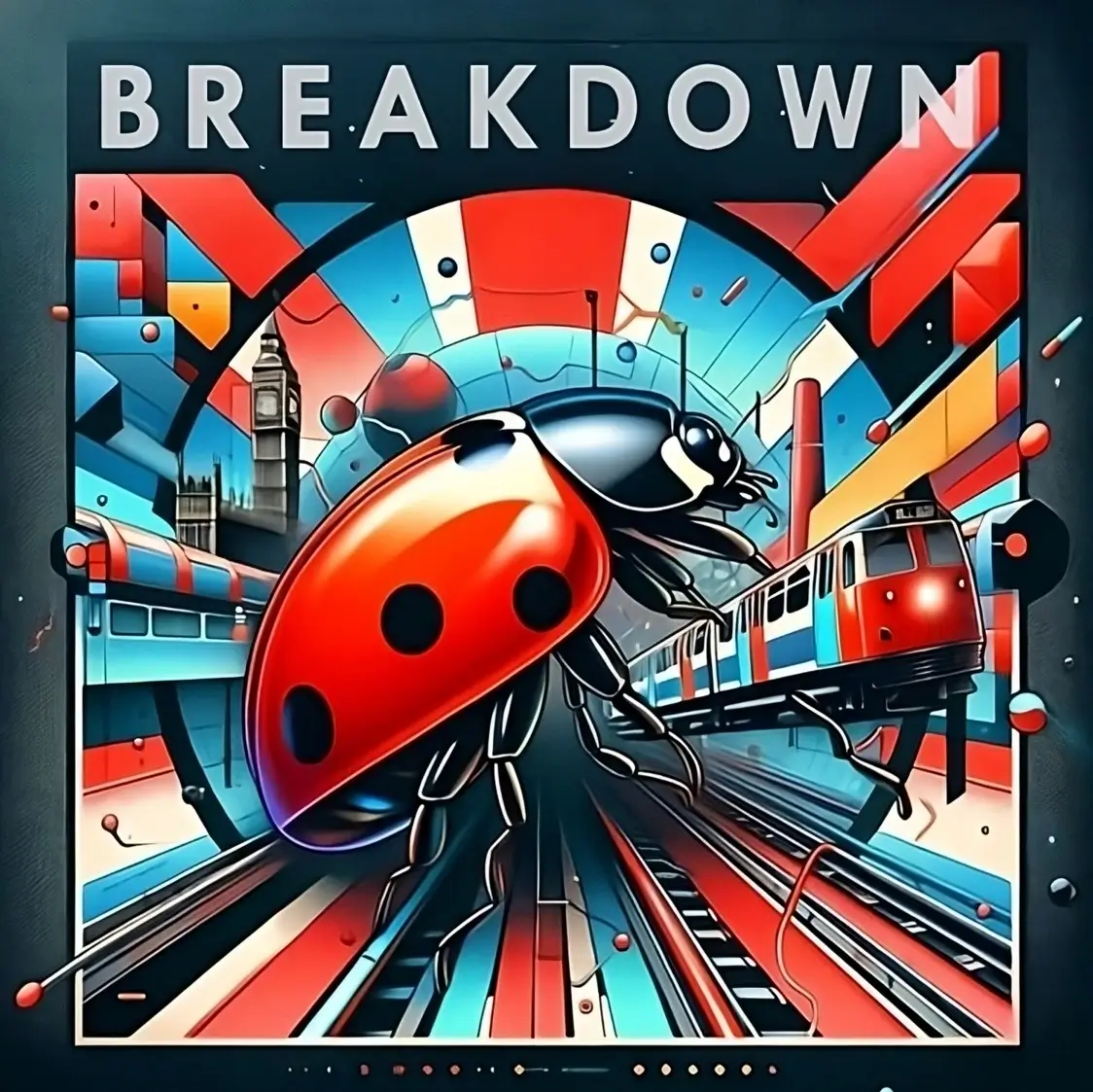After four years away, Mike Masser is back, and apparently the man didn’t spend that time crocheting or birdwatching. No, he made 5, an album that opens the door by kicking it clean off the hinges. This isn’t a polite return to the scene. It’s the kind of record that stomps into your living room, drinks all your whiskey, and dares you to say something about it.
Now, calling your album 5 is bold. It’s your fifth album, obviously, but it’s also a statement. Like saying: “Yes, I know numbers exist, and I will be using one.” Most bands, when they hit number five, either do something self-indulgent and bloated or they panic and release a Greatest Hits. Masser does neither. Instead, he takes the number and smashes it into the ground until it sparks. 5 isn’t reflective; it’s aggressive, like a weapon forged from grief, rage, and riffs heavy enough to crack pavement.
And this is where Masser has always been a bit sneaky. People think of him as “the loud guy,” the dude who plugs his guitar straight into a volcano and calls it tone. Which, fair. But underneath all that noise is a surprising amount of vulnerability. That duality is what defines 5. You get the riffs that could bulldoze a small village, but you also get songs that feel like they were written at 3 a.m. when the weight of the world is pressing down. This is music that isn’t just loud; it’s lived in.

The album kicks off with “Wolves in the Whiskey.” And yes, that is exactly as over-the-top as it sounds. Imagine Van Halen but someone fed them an entire crate of absinthe and told them to soundtrack The Crow. It’s theatrical, it’s gothic, it’s ridiculous, and it absolutely rules. It’s the kind of opener that doesn’t ease you in, it just throws you onto a motorcycle at midnight and hopes you know how to drive.
Then comes “Silence Speaks.” Spoiler: it doesn’t. It screams. It growls. It chews through riffs like a woodchipper. This is Masser in “teeth bared” mode, closer in spirit to modern hard rock acts like Grandson, except with less subtlety and more desire to punch the drywall. It’s one of those tracks that makes you want to stand in the rain and shout at a passing train for no reason.
“Twilight Zone” is where things get cinematic. It starts with bursts of radio chatter, which is a bold move because that usually makes me think of airports, but Masser sells it. The song unfolds like a fever-dream road trip, equal parts grit and gasoline. It’s relentless, propulsive, and almost feels illegal to play at normal volume. This is the one you throw on while flooring it down an empty highway at night, and yes, it will make you feel cooler than you actually are.
But Masser knows that an album of pure wall-to-wall heaviness can start to feel like being repeatedly hit with a frying pan. So he gives us “Don’t Follow.” Stripped-down, drenched in reverb, and haunting as hell, it’s the quietest song on the record, and somehow also one of the most devastating. It’s the musical equivalent of someone who’s been yelling suddenly whispering, and you lean in closer because it matters more.
Finally, “Morning After You.” And here’s where the gloves come off, not in anger but in grief. This song is a tribute to Masser’s late best friend, and it’s as delicate as Simon & Garfunkel wandering into a haunted house. The tenderness is almost uncomfortable, because it feels too real; like we shouldn’t be listening, but we are, and it hurts. The closing piano doesn’t resolve; it just lingers, like absence does. The album doesn’t end with fireworks. It ends with a ghost.
So what do we have here? 5 isn’t just another collection of loud noises for people who think Marshall stacks are personality traits. It’s a survival record. It’s about silence, loss, and what happens when you turn grief into electricity. Yes, the guitars scream. Yes, the drums pound. But what sticks with you are the gaps, the reverb hanging in the air, the quiet acoustic moments, the piano fading into nothing.
And here’s the thing: it works because it’s unarmored. Masser doesn’t try to hide behind distortion. His riffs bleed. His voice cracks. The whole record feels jagged and human, which makes it heavier than any studio polish ever could.
So no, 5 is not a “safe” album. It’s not the kind of thing you throw on in the background while folding laundry unless you want to fold your laundry angrily. It’s volatile, cathartic, and often uncomfortable; that’s why it matters. Masser hasn’t made something you’ll half-listen to while scrolling your phone. He’s made something that demands attention; something that punches, but also trembles. In short: 5 is what happens when an artist doesn’t come back to reclaim the past but to burn it down.
Follow Mike Masser
About the Author

A tenured media critic known working as a ghost writer, freelance critic for various publications around the world, the former lead writer of review blogspace Atop The Treehouse and content creator for Manila Bulletin.








